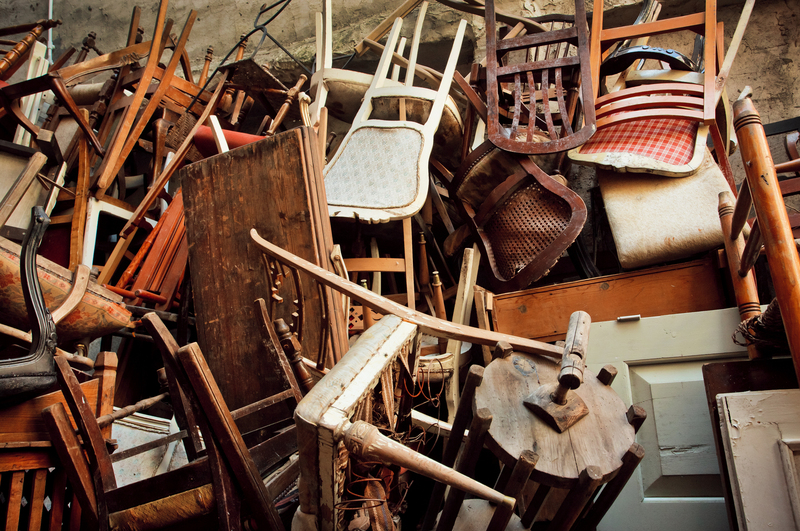The Ultimate Checklist for Packing Properly When Relocating
Relocating to a new home is an exciting adventure, but it can also be a stressful experience if not done properly. One of the most critical tasks in the moving process is packing efficiently. Whether you're moving across the city or to a different country, organizing and packing your belongings strategically can help streamline your relocation and simplify the unpacking process. This comprehensive guide will help you prepare with the ultimate checklist for efficient packing and relocating.
Why Is Proper Packing Crucial When Relocating?
Packing correctly when relocating saves you time, money, and stress. It also ensures your possessions arrive safely and remain undamaged during transit. A well-organized move reduces the chances of misplaced items and allows for an easier settling-in process. If you want your relocation to be seamless, a thorough packing checklist is essential.
Main Benefits of Systematic Packing
- Protects your valuables from breakage or loss.
- Reduces moving time and confusion during transition.
- Makes unpacking simple, with everything categorized and labeled.
- Helps stick to your moving budget by minimizing replacements and additional purchases.

Getting Started: Pre-Packing Preparation
Before you even start placing items into boxes, a little pre-packing organization can make a huge difference. Consider the following first steps as the groundwork for a successful move:
1. Plan Ahead
- Set a clear moving date.
- List all major tasks to complete before your move.
- Book your moving company or rental vehicle in advance.
- Inform relevant parties, such as your landlord, utility companies, and postal service.
2. Take Inventory
- Walk through your home and make an inventory of your belongings.
- Highlight high-value or fragile items for special attention.
- Evaluate the items you truly need and those you can let go.
3. Declutter and Downsize
- Sort items into categories: keep, donate, sell, and discard.
- Arrange for a garage sale or online selling for unwanted items.
- Donate useful items to local charities to lighten your load.
- Dispose of broken or expired items responsibly.
Essential Packing Supplies Checklist
Gathering the right supplies is a critical step in the process of packing for relocation. Having these essentials on hand will keep your move organized and protect your goods.
- Sturdy boxes in various sizes
- Packing tape (heavy-duty and wide)
- Bubble wrap and packing paper for cushioning
- Furniture covers for delicate or heavy pieces
- Stretch wrap to secure loose items and drawers
- Labels and markers for clear identification
- Plastic bags for small items and screws
- Scissors and utility knives
- Blankets or towels for added protection
- Specialized boxes (wardrobe, dish packs, electronics)
The Ultimate Packing Checklist for Your Move
Now let's break down the step-by-step packing process for relocating--room by room, item by item--so nothing gets left behind or damaged.
1. Kitchen Packing Tips
- Sort dishes, pots, and pans. *Pack rarely used items first.*
- Use plenty of padding (bubble wrap) for fragile glasses and plates.
- Keep essential utensils and a few plates aside for the moving week.
- Defrost and clean the refrigerator 24-48 hours before moving day.
- Seal all opened food containers in airtight bags or dispose of them.
- Label boxes: "Fragile - Kitchen" or specify the contents.
2. Living Room Packing Tips
- Disassemble bulky furniture where possible.
- Keep screws and hardware in labeled plastic bags taped to furniture.
- Remove cushions and pack them separately in large plastic bags.
- Wrap electronics with anti-static wrap and place in original boxes if available.
- Pack books flat to prevent spine damage and keep the box weight manageable.
3. Bedroom Packing Tips
- Pack off-season clothing first. Use wardrobe boxes for hanging clothes.
- Place jewelry in soft pouches and small containers.
- Use bedding to pad delicate items or fill empty spots in boxes.
- Keep daily essentials (toothbrush, pajamas) in an "essentials" box or suitcase.
4. Bathroom Packing Tips
- Finish packing nonessential toiletries ahead of time.
- Wrap liquids in plastic bags to guard against leaks.
- Dispose of expired medications and products.
- Pack towels and linens in boxes labeled "Bathroom."
5. Garage and Outdoor Items
- Drain fuel from lawn mowers and other gardening tools.
- Bundle together long-handled tools securely.
- Pack bulky or sharp items in durable, reinforced boxes.
- Dispose of hazardous materials following local regulations.
Labeling: The Key to Stress-Free Unpacking
One of the most overlooked aspects of packing when moving is detailed labeling. Good labeling practices make a world of difference at your new home. Follow these best practices:
- Label each box with its destination room and a brief list of contents.
- Use color-coded labels for quick visual reference.
- Mark boxes containing fragile items clearly for careful handling.
- Number your boxes and keep a master inventory sheet to track all of your belongings.
Smart Packing Strategies: Pro Tips for a Smooth Move
- Pack a moving essentials kit: Include chargers, snacks, medication, important documents, a change of clothes, and toiletries for each family member.
- Reserve time for packing over several days to avoid last-minute rushing.
- Don't overpack boxes: Heavier items should go in small boxes, and lighter items in larger ones to prevent box breakage or injury.
- Fill empty spaces in boxes with towels or linens to prevent shifting during transportation.
- Seal boxes tightly with high-quality tape to avoid spilling during the move.
- Take photos of the back of electronics before disconnecting cables for easier setup later.
- Keep valuables and important documents with you, not in the moving truck.
Checklist for Moving Day: Last-Minute Packing Essentials
On the day of your move, there are a few crucial tasks to remember:
- Do a final walkthrough of each room to ensure nothing is left behind.
- Double-check all box labels and inventory numbers.
- Prepare an "open first" box containing cleaning supplies, basic tools, and necessary kitchen items.
- Protect floors and walls from scuffs during loading and unloading.
- Hand off keys, remotes, and manuals for appliances to the new owner or real estate agent, if applicable.
- Take meter readings and document any damage with photos for your records.
Unpacking Checklist: A Fresh Start in Your New Home
Packing for relocation is only half the journey. When you arrive at your new home, follow this mini-checklist for a smooth transition:
- Start with the rooms you use most - usually the kitchen and bedrooms.
- Use your *color-coded labels and inventory list* to prioritize boxes.
- Check furniture and fragile items for any transit damage.
- Assemble basic furniture and set up beds first.
- Organize your essentials kit for the first night so you don't have to unpack everything right away.
- Recycle or dispose of packing materials responsibly.
Packing Mistakes to Avoid When Relocating
- Delaying packing until the last minute increases stress and mistakes.
- Ignoring decluttering leads to unnecessary work and higher moving costs.
- Mislabeled or unlabeled boxes create confusion in your new home.
- Overstuffed boxes risk breakage and injury.
- Leaving packing day-of - always be packed and ready before moving day.

Frequently Asked Questions About Packing for Moving
How long before my move should I start packing?
Begin packing non-essentials at least 3-4 weeks before your scheduled moving date, then pack daily-used items in the last week.
Should I hire professional packers?
If you have valuable, fragile, or large items, it's worth considering professionals. They can provide expertise and often offer insurance.
What's the best way to pack clothes for relocation?
Wardrobe boxes are great for hanging clothes. For folded clothes, suitcases, and large bags work well. Vacuum bags can save space.
What should go in my "essentials box"?
- Basic kitchen items (plate, utensils, kettle, mug)
- Personal hygiene supplies
- Bedding and pajamas
- Device chargers and power strips
- Medications
- Important papers and IDs
Conclusion: Master Your Move With the Ultimate Packing Checklist
Relocating doesn't have to be chaotic or overwhelming. With the ultimate packing checklist for relocation, a little planning, and smart strategies, you can make your move efficient and even enjoyable. Remember: Start early, stay organized, and label everything! By following this packing guide, you'll protect your belongings, minimize stress, and set yourself up for a smooth transition to your new home. Happy moving!



